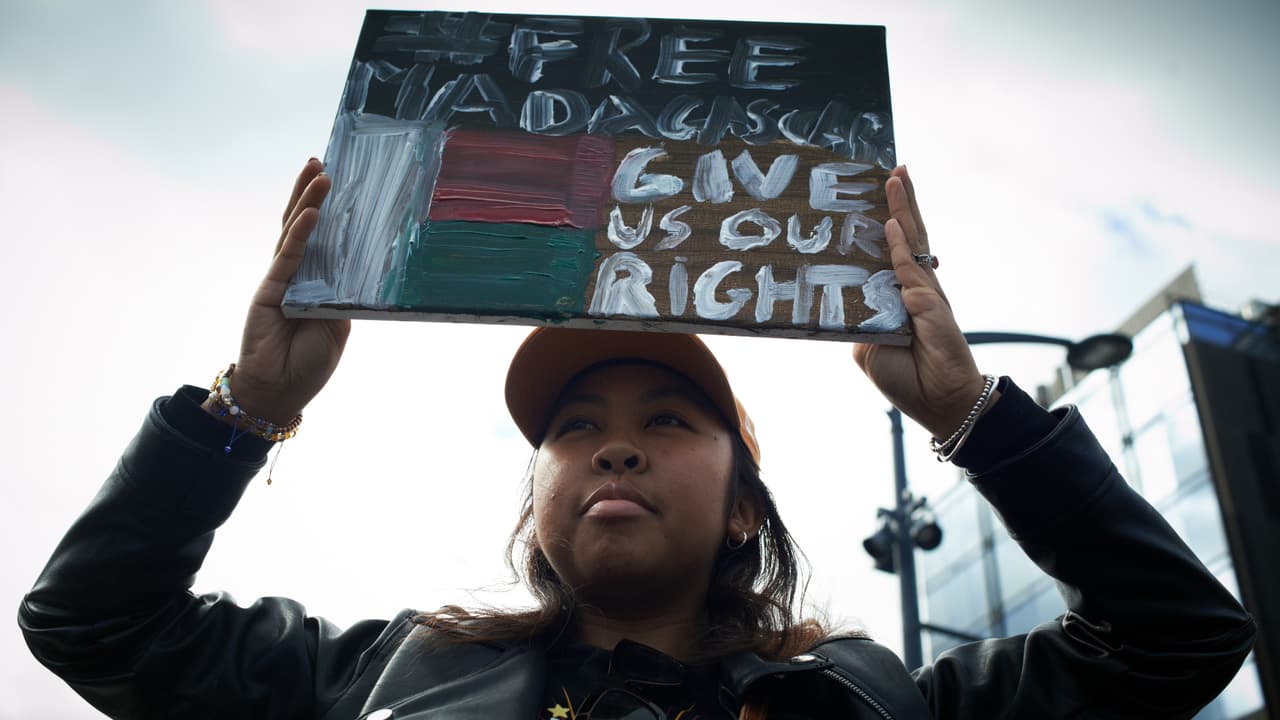Madagascar President Andry Rajoelina dissolved parliament to block an ouster vote amid mounting protests and an alleged assassination attempt. As unrest grows and soldiers join demonstrators, Rajoelina faces the toughest test of his political career.
Madagascar’s political crisis deepened on Tuesday after President Andry Rajoelina dissolved the national assembly, a move widely seen as an attempt to block a planned opposition-led vote seeking his removal from office.
“This decree shall enter into force immediately upon its publication by radio and/or television broadcast,” the presidency announced in a statement shared on Facebook — a sign of urgency as unrest rippled through the Indian Ocean nation.
President Under Siege
The move came less than 24 hours after Rajoelina, 51, said he was taking refuge in a “safe place” following what he described as an attempt on his life. Speaking in a late-night address streamed on Facebook, the embattled leader claimed that “a group of military personnel and politicians planned to assassinate me,” adding, “I was forced to find a safe place to protect my life.”
His speech — delayed twice as soldiers reportedly tried to seize control of the state broadcaster — marked his first public appearance in days.
Rajoelina’s whereabouts had been the subject of intense speculation, with reports suggesting he may have fled on a French military plane. Both French officials and President Emmanuel Macron declined to confirm this.
In an apparent bid to ease tensions, Rajoelina issued a decree pardoning eight individuals, including French-Malagasy dual national Paul Maillot Rafanoharana, sentenced to 20 years for an attempted coup in 2021.
Last month, Rajoelina dismissed his entire cabinet — another move seen as an effort to defuse mounting anger. The Senate followed suit by removing its president, Richard Ravalomanana, a retired general, meeting one of the protesters’ key demands.
Streets of Anger and Defiance
What began weeks ago as protests over power and water shortages has spiraled into a nationwide uprising calling for Rajoelina’s resignation. The demonstrations, led largely by young citizens, have drawn thousands into the streets of Antananarivo.
On Monday, soldiers from the elite CAPSAT unit — the same force that played a key role in Rajoelina’s 2009 coup — joined the protesters. “We refuse orders to shoot on demonstrators,” they declared in a viral video that emboldened the movement.
The gendarmerie, often accused of excessive force, also admitted to “faults and excesses” in handling the protests.
The United Nations estimates that at least 22 people have died since the unrest began, though the government disputes that figure. “There were 12 confirmed deaths, and all of these individuals were looters and vandals,” Rajoelina insisted last week.
A Familiar Cycle
For Madagascar, political upheaval is not new. Since gaining independence from France in 1960, the country has experienced repeated cycles of coups, protests, and fragile governments.
Rajoelina himself rose to power through a coup in 2009, only to face now what he once led — a military-backed movement demanding change.
The African Union has urged calm, calling on security forces “to return to uphold their constitutional mandate, and to refrain from meddling in the political affairs of the country.”
